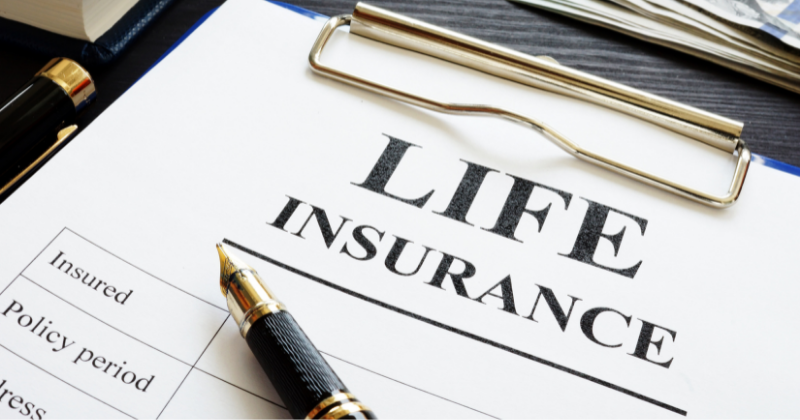In many cases, those who have previously received a TPD insurance payout may now be ready to work again. But are you still entitled to work even though your TPD claim was successful?
Jump straight to…
- In many cases, those who have previously received a TPD insurance payout may now be ready to work again. But are you still entitled to work even though your TPD claim was successful?
- Can I Return To Work After My TPD Claim Has Been Accepted?
- Returning To Work After A TPD Payout – Understanding Your TPD Insurance Policy
- If I Retrain And Return To Work Will I Have To Return My TPD Payment?
- What Is The Relevance Of Education, Training, Skills And Experience In A TPD Claim?
- Do Insurers Sometimes Assess Claims Under The Wrong Definition?
- Being Unlikely To Be Able To Return To Work In Your Own Occupation
- Being Unlikely To Be Able To Return To Work In Any Occupation
- Overwhelmed by the different insurance options and don’t know where to start?
- Book a complimentary call with our team to get it sorted.
TPD insurance can provide a financial safety net, helping you support yourself and cover everyday living expenses.
If you have a permanent injury or illness, it may be difficult or impossible to return to your everyday job. But in some instances, you may recover or be able to work again in the future thanks to medical advancements or retraining.
Can I Return To Work After My TPD Claim Has Been Accepted?
There are some circumstances where you can return to work after a TPD (total and permanent disability) payout.
One common situation where you may be able to return to work after a successful TPD claim is if new medications or rehabilitation techniques are available.
Your ability to return to work after a successful TPD claim will depend on:
- How severe your injury/illness is
- What type of injury/illness you have experienced
- Your employer’s return to work policy
- The details and inclusions of your TPD policy
Returning To Work After A TPD Payout – Understanding Your TPD Insurance Policy
Different TPD insurance policies will cover different things so it’s important to understand your policy intimately.
One of the most important elements of your TPD policy that will help you determine if you can return to work will be the coverage type.
An insurance company may differentiate between returning to work in your own occupation compared to returning to work in any occupation.
There are two different TPD policy coverage types:
- Own occupation: being unable to return to work in your occupation
- Any occupation: Being unable to return to work in any occupation
In other words, if your previous job was as a plumber but you have an injury or illness that prevents you from returning to this job, you may be able to find work in another industry or another role that doesn’t require hands-on work.
If I Retrain And Return To Work Will I Have To Return My TPD Payment?
No – once your TPD benefit is paid, you will usually not have to pay it back if you are able to return to work later in life.
However, it is important to seek professional advice to understand if retraining or returning to work will have any impact on your TPD lump sum payout.
If My Condition Improves Do I Have To Return My TPD Payment?
No – if your condition improves, you will not have to repay your TPD lump sum.
The decision to approve your TPD claim is based on your current position. Any future improvements to your injury or illness will not be expected to return your TPD payout.
What Is The Relevance Of Education, Training, Skills And Experience In A TPD Claim?
Many TPD policies define ‘total and permanently disabled’ as being permanently unable to return to work with your current education, training, skills and experience.
Generally, this means that if you would be unable to return to work after your injury, illness, or permanent disability you may be entitled to a successful TPD claim.

For example, a carpenter who can no longer work “on the tools” due to a permanent injury or illness, but is able to return to work in education at TAFE or high school would still be eligible for TPD benefits.
It’s not always exactly clear what is considered ‘retraining’ and how extensive the new education may be. It is worth talking to an insurance professional to ensure you are making the most of your TPD insurance cover but still within the policy’s guidelines.
Do Insurers Sometimes Assess Claims Under The Wrong Definition?
Yes – there are many TPD definitions that can apply to you and claiming TPD can be a complex process.
Every total and permanent disability insurance policy is different so it’s important to understand your own policy.
For example, under some TPD policies, if you are only working part-time, you will not be categorised under the ‘work-based definition’.
In these cases, the insurance company may apply a different definition – such as loss of limbs or ADL (activities of daily living). If you apply for the wrong definition, this may result in your TPD claim being denied.
Get expert guidance from an experienced insurance professional by booking a complimentary call with our team to get your money sorted.
Manage your money better by having a quick chat with your MMS Money Mentor today!
Being Unlikely To Be Able To Return To Work In Your Own Occupation
If your insurance policy pays a benefit for being unable to work in your usual or own occupation, this means you’re eligible to make a claim if you can no longer work in the occupation that matches your training and experience due to an injury or illness.
For example, if you’re a qualified builder and you sustain a back injury that prevents you from doing building work, you can claim a lump sum TPD benefit.
Being Unlikely To Be Able To Return To Work In Any Occupation
If your TPD policy only pays a TPD payout for being unable to work in any occupation, then you are only eligible to make TPD claims if your injury, illness or permanent disability prevents you from working in your own job, but also prevents you from retraining to work in any occupation.
For example, if you have a mental illness that stood you from working altogether, you may be able to make TPD claims.
It’s important to note that there are many criteria when it comes to receiving successful TPD claims so it may be worth seeking advice if you are not fully aware of your policy inclusions.
Still not sure where to start, or want help securing the right insurance faster?
That’s okay!
Many people may be unaware of this…but just like you, 41% of Aussies intend to get financial advice rather than going it alone, according to an Australian Securities and Investments Commission (ASIC) report.
Overwhelmed by the different insurance options and don’t know where to start?
Book a complimentary call with our team to get it sorted.
If you feel overwhelmed by a tidal wave of options and don’t know where to start, you can reach out to your MMS Money Mentor to help get your money sorted.
Manage your money better by having a quick chat with your MMS Money Mentor today!
It’s that easy!

I want to see all my options with the help of a Finance Expert
Call Our Team TodayStill looking for more?
Checkout these commonly asked questions.
What do you do with A TPD payout?
If your TPD claim has been successful, you are entitled to a lump sum payment.
The lump sum payment is usually paid into your superannuation fund giving you the choice to:
- withdraw the entire balance from your superannuation fund as a lump sum
- make a partial withdrawal and leave the rest of the balance in your super
- leave the entire amount in your super
You can take partial withdrawals from it to use as regular income for living expenses, medical treatment and everyday lifestyle costs.
Can you claim TPD twice?
Yes – you can lodge multiple TPD claims for the same injury or illness as long as each of your current funds is independent of the other.
What percentage of TPD claims are successful?
ASIC shows that more than 8 in 10 TPD claims are successful.
Successful TPD claims require many criteria to be met. It’s also important to ensure you have the right level of TPD insurance cover to start with.
Many people use personal injury lawyers to claim a TPD payout. Professionals that work in personal injury law can help you determine if your total and permanent disability claim might be successful.
Does TPD payout affect Centrelink?
Generally, a TPD payout will normally not affect your Centrelink payments, especially in cases when it’s deposited straight into your super fund as a lump sum. However, a TPD payout is a source of income so should always be reported to Centrelink.
Does a TPD Payout Affect Income Protection?
You can have both TPD insurance and income protection insurance. You can usually claim both and the claims will not impact each other.








